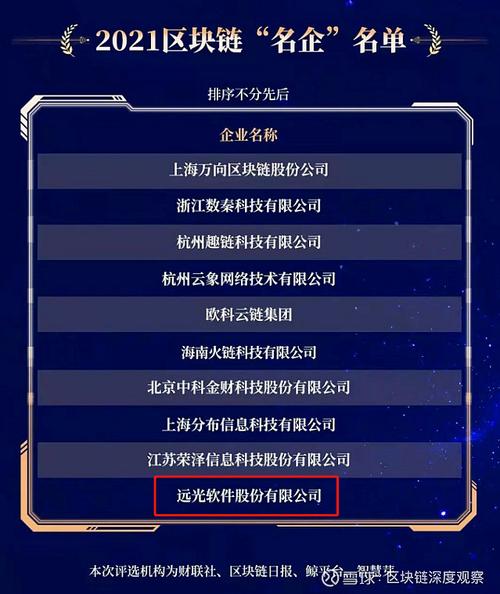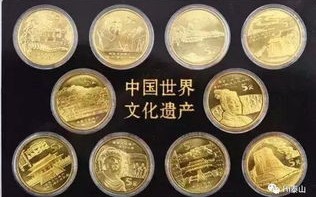Title: Top Blockchain Companies of 2021: A Comprehensive Ranking
Introduction
In 2021, the blockchain industry experienced significant growth and innovation, with numerous companies emerging as key players in the field. From cryptocurrency exchanges to blockchain development firms, the landscape was diverse and dynamic. In this article, we'll explore the top blockchain companies of 2021, highlighting their achievements, contributions, and impact on the industry.
1. Coinbase
Coinbase stands out as one of the leading cryptocurrency exchanges globally. Founded in 2012, it offers a userfriendly platform for buying, selling, and storing various cryptocurrencies, including Bitcoin, Ethereum, and Litecoin. In 2021, Coinbase made headlines with its successful direct listing on the Nasdaq stock exchange, further validating the mainstream acceptance of cryptocurrencies.
2. Binance
Binance is another prominent player in the cryptocurrency exchange space. Launched in 2017, Binance quickly rose to prominence, thanks to its wide range of supported cryptocurrencies and low trading fees. In 2021, Binance continued to expand its offerings, introducing new products and services like Binance Smart Chain and decentralized finance (DeFi) solutions.
3. Ethereum
Ethereum remains a cornerstone of the blockchain industry, known for its smart contract functionality and decentralized applications (DApps). In 2021, Ethereum underwent a significant upgrade with the deployment of Ethereum 2.0, which aims to improve scalability, security, and sustainability. This upgrade signaled Ethereum's commitment to innovation and its continued relevance in the blockchain space.
4. Ripple
Ripple is a blockchainbased payment protocol that facilitates fast and lowcost crossborder transactions. Despite facing regulatory challenges in 2021, Ripple continued to expand its network of partners and clients, demonstrating the utility of its technology in the global payments industry. Ripple's focus on interoperability and efficiency positions it as a key player in the financial services sector.
5. Chainlink
Chainlink is a decentralized oracle network that connects smart contracts with realworld data. In 2021, Chainlink witnessed significant adoption across various industries, including decentralized finance, gaming, and supply chain management. Its reliable and secure data feeds have made it an essential component of the blockchain ecosystem, enabling the creation of tamperproof and reliable smart contracts.
6. Cardano
Cardano is a blockchain platform known for its focus on scalability, interoperability, and sustainability. In 2021, Cardano made strides with the deployment of its highly anticipated Alonzo upgrade, enabling the development of smart contracts on its network. This milestone positioned Cardano as a viable competitor to Ethereum and other smart contract platforms, attracting developers and users alike.
7. Polkadot
Polkadot is a multichain blockchain platform that enables interoperability between different blockchains. Founded by Ethereum cofounder Gavin Wood, Polkadot aims to address the scalability and governance challenges faced by existing blockchain networks. In 2021, Polkadot continued to gain traction, with its ecosystem expanding rapidly and its native token, DOT, reaching new highs in terms of price and market capitalization.
8. Solana
Solana is a highperformance blockchain platform designed for decentralized applications and cryptonative projects. In 2021, Solana emerged as one of the fastestgrowing blockchain networks, thanks to its high throughput and low transaction costs. Its innovative approach to scalability and consensus mechanisms attracted developers and users, leading to a surge in adoption and ecosystem development.
9. Uniswap

Uniswap is a decentralized exchange (DEX) built on the Ethereum blockchain, allowing users to trade cryptocurrencies directly from their wallets. In 2021, Uniswap played a pivotal role in the decentralized finance (DeFi) revolution, facilitating billions of dollars in trading volume and empowering users to participate in permissionless trading. Its automated market maker (AMM) model and governance token, UNI, cemented its position as a leader in the DeFi space.
10. Terra
Terra is a blockchain protocol that aims to create a pricestable cryptocurrency for global payments and financial applications. In 2021, Terra experienced rapid growth, fueled by the success of its stablecoin, TerraUSD (UST), and its decentralized finance (DeFi) ecosystem. Its focus on scalability, usability, and interoperability positions it as a promising player in the blockchain industry, with potential applications in crossborder payments and remittances.
Conclusion
The blockchain industry witnessed remarkable growth and innovation in 2021, with numerous companies making significant contributions to the ecosystem. From cryptocurrency exchanges to blockchain platforms and decentralized applications, the landscape was diverse and dynamic. As we look ahead to the future, these top blockchain companies will continue to drive innovation, expand their reach, and shape the future of finance, technology, and beyond.







